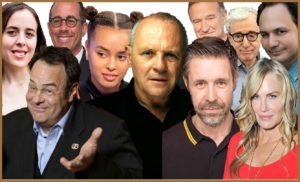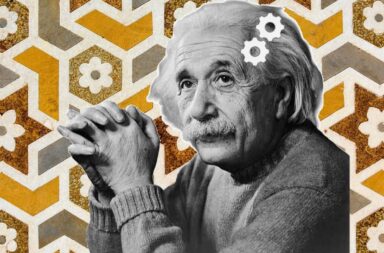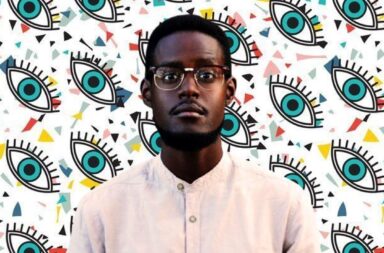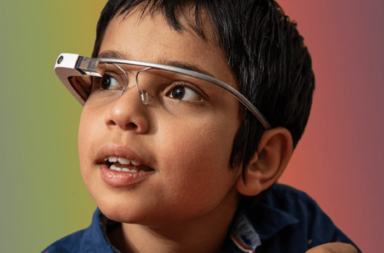As the world of art becomes more and more diverse, it becomes less and less strange to switch on the TV, go to your local cinema or visit a nearby theatre and see a depiction of an autistic character. However, with autistic characters becoming more common than ever, some are left wondering: why doesn’t our rise in representation carry over to a rise in autistic actors?
This is something I have been thinking about in recent months and, unlike those within the autistic community who are firm subscribers to the ‘nothing about us without us’ model of thinking, I believe I have a different answer; one which, at worse, will provide a bit of perspective as to where all the autistic actors are and, at best, will help push this conversation into a more progressive direction.

Do Autistic People even make Good Actors?
Sadly, one response you will often hear when this question is raised is, ‘Do autistic people even make good actors in the first place?’. This is annoying on two fronts as:
- It shows a complete lack of awareness as to how diverse the whole autistic community is, and
- It totally underestimates how much potential an autistic actor (in fact, an autistic person) can have.
Autistic actors are not only great at what they do, but they are naturally gifted at it too, as being able to pretend and imitate others is something which many of the autistic community will have inherently grown up doing, in an attempt to ‘mask’ autism.
Autistic masking (or passing/camouflaging) is the act of disguising autistic traits from others, by learning to mimic the actions of those around us. Autistic masking is extremely common in females on the spectrum and, if you ever wanted to know how good autistic actors can be, just look at the diagnosis rates of autistic females and autistic males – a ratio which, though widely reported as male bias, is more likely a close 1:1 split.
Of course, some autistic actors who are verbally challenged or socially impaired may have a harder time attaining roles. However, it only takes one episode of Atypical’s season 2 to realise that even these hurdles can be overcome by some excellent autistic actors.

Where are all the Autistic Actors?
You may then be asking, ‘if autistic actors are so good at their jobs, how come we aren’t seeing any?’ and the answer is simple: We are.
Autistic actors are actually not as rare as you may think and it only takes a quick Google search of ‘diagnosed famous autistic actors’ to see a plethora of referenced responses including:
- Daryl Hannah (Splash)
- Paddy Considine (Dead Man’s Shoes)
- Dan Aykroyd ( Ghostbusters)
- Brandon Polansky & Samantha Elisofon (Keep the Change)
- Talia Grant (Hollyoaks)
- Sir Anthony Hopkins (Silence of the Lambs)
- Kayla Cromer (Everything’s Gonna Be Alright)
And that’s not all as, while I wouldn’t normally include people who are without an autistic diagnosis when using examples (as I believe it’s not up to me or anyone else to make this assumption), I feel, to prove this point further, it may be appropriate to mention that Jerry Seinfeld (Seinfeld), Woodie Allen (Annie Hall) and Robin Williams (Legend of Zelda on Nintendo 3DS advert) could also be, potentially, autistic.
Yes, this number isn’t overwhelming by any account, but when you consider that the current estimate for how many autistic people there are in the world, compared to non-autistic people, is 1 in every 100, then it makes sense that we can only name 10 autistic actors easily as I’m sure I would have a hard time naming 1000 non-autistic actors in comparison.
It should also be stated that, more likely than not, there are even more autistic actors out there. However, these actors are either yet to disclose their diagnosis or are themselves unaware of their condition. Of course, if any actor who chooses to speak openly about their autism and bring awareness and inspiration to aspiring thespians on the spectrum, then that would be great, but just like any job this is entirely up to the individual and, as such, they shouldn’t be pressured into releasing this information to the public.

Should Autistic Actors Play Autistic Characters?
To the heart of the matter though, the question of ’should autistic actors play autistic characters?’ still remains and, although I don’t expect my opinion to be the final say, I do believe that the answer is not only a big fat ‘no’, but I also want to say that the question itself is fairly ridiculous.
I’ve seen the argument made countless times that giving autistic roles to autistic actors is a great way for us to enter into the industry. However, I can’t help but feel that this all but invites the criticism of ‘yeah they were good in that role but they were only playing themselves’ – and to be fair that wouldn’t be a bad point to make.
Acting is all about taking on a new persona and immersing an audience into a new world, through motion and skill. If I turned up pretending to be me it doesn’t make me look talented as, if anything, it tells viewers that I haven’t the ability to assume a new identity for the story or, alternatively, I do so well that I am forever typecast into autistic roles.
The Bigger Problem with Autism in Entertainment:
In preparation for writing this article, I visited a local theatre (which will remain nameless), to see a performance of a play (which will remain nameless) featuring an autistic character, played by a non-autistic actor (who, you guessed, will remain nameless). Whilst it didn’t provide me with an example of how non-autistic actors are perfectly fine playing autistic characters (as I was looking for), the original reason backfired so hard that it actually enlightened me to a much larger factor in this debate.
To be honest, the performance was horrific in every conceivable way, but the ‘oh my God, this is unbearable’ moment came when, in the second half of the play, it was revealed that the autistic character had in fact hidden that he could speak from his family and friends for years; a guise he broke for the sole purpose of stating that ‘bees’ are causing the increase in autism rates – that’s not a typo, I actually said ‘bees’!
Although I don’t think I could possibly have gone to a worse performance, I’m glad I attended this play as it showed me that whilst it would be nice to see more autistic actors in general, the problem with the entertainment industry isn’t the fact autistic people aren’t performing, but that we do not have enough involvement in the entire creation process.
Whether its film, TV or play, no one individual is responsible for the outcome of a production and, getting more autistic actors involved won’t fix a bad depiction (in fact it would be more insulting for an autistic actor to have to perform as an insensitive autistic character). We need to realise that if we’re going to create a great autism portrayal in any form then there needs to be someone autistic on hand from the get-go. This could be an autistic writer, director or consultant.
Whilst I don’t believe it was anyone’s intention to produce something as poorly conceived as the play I saw, we need to be aware that people can be easily convinced by what they see; interpreting fiction as fact. That’s why, in my opinion, autism in entertainment doesn’t necessarily need more autistic actors, it needs facts and fact-checkers, to get the characters we do have right.

Carry on the Conversation:
Do you believe autistic actors should play autistic characters? I would love to hear your thoughts and reasons in the comments below. Or for more controversial discussions, why not check out my article on whether we should say ‘autistic person’ or ‘person with autism’?
As always, I can also be found on Twitter @AutismRevised and via my email: AutisticandUnapologetic@gmail.com.
If you like what you have seen on the site today, then show your support by liking the Autistic & Unapologetic Facebook page. Also, don’t forget to sign up to the Autistic & Unapologetic newsletter (found on the sidebar on laptops and underneath if you are reading this via mobile) where I share weekly updates as well as a fascinating fact I have found throughout the week.
Thank you for reading and I will see you next Saturday for more thoughts from across the spectrum.


